HALF A CENTURY on and the memory is still burned into Billy Morgan’s mind.
When the Cork players ran out on All-Ireland football final day and lined up for their team photograph, Hill 16 behind them, they looked downfield.
With one exception. Their captain’s gaze was elsewhere. Seated in the front row, defender Frank Cogan to his left, Morgan’s focus was to his right.
“I had come out and just punted the ball up in the air,” recalls Morgan.
“So I’m looking right, because the Galway team went out and the ball was down in their half of the field. I was keeping an eye where it was.
“When the photo was taken, I ran in and Liam Sammon, the Galway captain, a fella I knew well, I said to him, ‘Ye’ve a ball belonging to us there.’
“I got it back anyway.”
“We only had two balls, so you had to feckin’ mind them!” laughs Cogan.
“It isn’t like 30 balls now, all out on the field.”
On this day in 1973 @NemoRangersGAA legend Billy Morgan captained @OfficialCorkGAA to the All-Ireland Senior Football Championship title at @CrokePark. He became just the second Cork man to accept the Sam Maguire Cup and bring it back to Leeside #corkhurlinghistory pic.twitter.com/RpusWNc3Qr
— Cork Hurling History 🔴⚪️ (@HurlingHistory) September 23, 2021
The precious cargo retrieved, Cork could fine-tune their last-minute preparations. The afternoon brought deliverance. The county’s first All-Ireland since 1945.
It will be 50 years next Saturday since they lifted Sam.
Billy and Frank. Morgan and Cogan. Number one and number two that day, the same positions they filled in that year’s All-Star selection, Morgan also crowned the Texaco Footballer of the Year.
School mates when they were kids in Chríost Rí in Turners Cross, brothers-in-law later in life. Soldiering together for the Nemo Rangers cause for decades, jumping to the elite stage with Cork.
Retirement took Morgan down the management route where his feats reinforced his iconic football status. He brought Cogan in to the Cork football setup of the ’80s, taking over as masseur from Kid Cronin, the charismatic figure who was the soul of the dressing-room.
Nemo is hardwired into their DNA, Cork football a passion that will never dim.
Sitting together on a Wednesday morning in the Nemo Rangers clubhouse, taking turns in trips down memory lane.
An enduring friendship started in school. Cogan was born in July 1944, grew up on Friars Walk in the southside of Cork city. Morgan was born in February 1945, he hailed from nearby High Street.
“Frank came into our class in school, I think it was third,” says Morgan.
“He had these round-rimmed glasses, we didn’t realise what an athlete he was. He became the leader of the class.
“Frank went on to the school teams straight away, even though he was a couple of years younger. Then in fifth class we won the U13 Sciath Na Scol and Frank was captain.
“It was the first thing I ever won.”
*****
There was no path mapped out for Billy Morgan to become an All-Ireland winning goalkeeper.
A Cork minor centre-forward, afterwards the ball bounced in a different direction for him.
Billy: “I was in college and my sister was going out with a fella who was in Dave Geaney’s (Kerry All-Ireland winner) class.
“College were looking for a keeper, so Dave Geaney approached me. So I did, I played in the Sigerson that year. We played Queens in Belfast, my first official game in goal. Sean O’Neill from Down was full-forward and he was brilliant.
“I never had any intentions of staying there. I came back to Nemo and I thought Nemo would put me out the field. But Dinny McDonnell said we’ll play our best players in their best positions. They kept me in goal.”
Frank: “It was a bit of a surprise at the start, but he took to it like a duck to water. Within 12 months, you would imagine he played there all his life.
Billy: “I read Peter Shilton’s book at the time and he was giving tips on training. I copied an awful lot of that. I liked it, I have to say.
“The only thing was when the old handpass goal came in, you’d no chance against that. Mikey Sheehy said to me, he might have been plámásing, he felt embarrassed to go through and handpass it.”
Kickouts. Restarts. In the modern game, possession is king. The role of the goalkeeper is heavily scrutinised.
Kickouts back then? Different times.
Billy: “The 1967 team, Eamonn Young was training us and he said, ‘As for Billy Morgan, I’d piss further than he’d kick it.’
“So when Frank moved to the full-back line, he started to take the kickouts.”
Frank: “Ask me how I tore my groin!
“I wasn’t much better than him. If we reached 50 yards, we were doing well. Now they can drive it 70 yards, I don’t know how they do it.
Billy: “John Kerins was similar, he’d take two steps back and pick out a fella, 60 yards away. I often say Jimmy Kerrigan and Kevin Jer (O’Sullivan) would never have been heard of, only for me because I could only reach them in the half-back to give them short ones.
Frank: “We used to take some short kickouts, didn’t we?”
Billy: “We used to, yeah.”
Frank: “I’d dawdle when I was supposed to be going back to kick out the ball and if I wasn’t marked, Billy would just put it down and straight away to me.”
Billy Morgan keeping possession with short kick outs before Stephen Cluxton was born @sportsdes @MickFoley76 pic.twitter.com/53wQRTc1qX
— Adrian Looney (@looneyadrian71) March 8, 2021
*****
How were Cork shaping up before 1973?
The memories of the 1967 All-Ireland final loss to Meath still lingered.
Billy: “In ’65, Cork were beaten by Limerick in the first round. The U21s, we went to the All-Ireland final and were beaten by Kildare. Éamonn Young and Donie Donovan came in as senior co-trainers, they brought in a load of the U21 team.
“It developed. We were unlucky to lose to Galway in the 1966 semi-final, that was their three-in-a-row team. Then Youngy went away with the Army and Donie did the training. Went to the final against Meath.”
Frank: “An awful feckin’ All-Ireland, which we should have won.”
Cork slipped back after that. Disorganisation set in. Unrest grew between the clubs and the board. One particular row saw the Glen Rovers players withdrawn, which impacted the St Nicks contingent and their pioneering coach Donie O’Donovan.
Frank: “The late ’60s were a disaster. I trained the team one year, I was only 24 or 25. I just copied the drills that Donie and Eamonn did.”
Billy: “The players in ’72, we went back to Donie ourselves, went up to his house in Gardiner’s Hill. Asked him to come back, he did, and we won the All-Ireland.”
They reminisce about playing contemporaries from that era. The sadly departed. Éamonn Ryan, the groundbreaking Cork ladies football coach, was corner-forward on the ‘67 team.
Billy: “My last year with Cork, he was coach. I played with him in college as well. He was a leader, a fella that put a lot of thought into it.
Frank: “Éamonn was more than a trainer. He was into fellas’ wellbeing. Way before his time. If some fella was in trouble, he’d take them to one side, gave a lot of advice. You see it the way the ladies footballers talked about him, he was more of a father than a coach.”
1971 is a season they rue.
Billy: “Kerry hammered us in 1970. Then in ’71, at half-time they were up four points. We blitzed them in the second half. It finished up, we won 0-25 to 0-14. When we went up to play Offaly, it was like an anti-climax. We had beaten Kerry and we really weren’t up for it against Offaly.
Frank: “That was a good Offaly team. But Cork lost more All-Ireland semi-finals because after beating Kerry in a Munster final, it was very hard to get back up.”
Billy Morgan #Cork and Liam Sammon #Galway shake hands before 1973 All Ireland SFC Final #gaa #nostalgia pic.twitter.com/lsWH8CLUtb
— GAA Nostalgia (@gaanostalgia) November 27, 2014
*****
As Morgan tried to steer Cork to the summit, his exploits were not going unnoticed. Kerry emphatically won the 1969 Munster final but the defeated goalkeeper got plenty plaudits.
“A few days later, I got a knock on the door and a fella asked me would I be interested in a trial for Celtic.
“I thought it was Cork Celtic and said ‘no’. He said it was Glasgow Celtic.
“I said, ‘Oh Jesus, sure I wouldn’t mind going for a trial.’
“I thought he was a scout, he lived not too far from me in Summerhill South.”
The weeks dragged on before eventually a trip was arranged to Glasgow that August. They landed at Parkhead and were taken to meet Sean Fallon, the Sligo native and right-hand man to the legendary Jock Stein.
The timing could have been better: they landed on the day of an Old Firm derby in the League Cup.
Fallon organised for Morgan to stay next door to him in digs. He trained over the next couple of weeks, soon learning from Fallon that it was not the recommendation of a Celtic scout that had brought him over, but the son of a Glaswegian who was convinced of Morgan’s talents and had rang the club repeatedly.
By end of August it was back to school for Morgan as his teaching job called.
“Celtic told me to come back on Christmas holidays. Then in October I got a letter, thanking me for my time and that they’d signed a goalkeeper from Wolves, Evan Williams.
“Celtic went to the European Cup final in 1970 (against Feyenoord) and Evan was in goal.
“It’s kind of exaggerated to say I got a trial, but I did train with the Lisbon Lions. I enjoyed it. I was glad I did it.”
*****
In November 1972, Nemo Rangers reached the promised land. It is impossible to now think of a club with 23 Cork senior titles as one locked in a cycle of frustration, but that’s where there were before their breakthrough win.
Billy: “In ’71 we were beaten by Carbery and played very well that day. I remember feeling despair after that. ‘Are we ever going to do it?’”
Frank: “We’d been in about five semi-finals, got some desperate hammerings. I played 10 years senior before we won a county. It was a huge relief.”
The Munster and All-Ireland club scenes saw them enter uncharted territory. Waterford’s Stradbally, Kerry’s Kenmare, Clare’s Doonbeg and Fr Griffins of Galway. Nemo beat them all before they faced Dublin’s St Vincent’s in the final in June 1973.
“Vincent’s had the big names,” recalls Morgan.
“I was friendly with Jimmy Keaveney. One night we were in the Olympic Ballroom in Dublin, a couple of weeks before that we’d played Dublin in the National League and Jimmy scored two goals.
“Next thing I saw him out on the dancefloor. Of course, after a few drinks, ‘Hey Jimmy Keaveney!
“He told me afterwards he was chatting up this one who is now his wife.
“And he said, ‘After you, I had to go looking for her again!’
“But a couple of weeks later Munster played Leinster in Navan and I was in goal for Munster and Jimmy was a sub for Leinster.
“At half-time as we walked to the dressing-room, I put my head down, kind of embarrassed.
“Jimmy saw me, ‘Jaysus, how are you? We go for a pint after.’
“So we went for a pint and I became friendly with him after that.”
They drew the first day in Portlaoise. Nemo bagged four goals and won the replay in Thurles.
Frank: “We had no club, so we used to come back to the Tory Top (Bar). We’d some great nights.”
Billy: “Dinny Mc hired the Lough Community Centre, it’s an old church up by Pouladuff Road, for the night after the pubs closed. So that’s where we celebrated.
The competition exploded in profile after that. Nemo still top the roll of honour with seven titles.
They remember some of the instrumental figures who shaped the club.
There was Dinny McDonnell, who was also at the heart of Cork’s progress later.
Billy: “The late ’60s, he was chairman of the club. Getting our first pitch in the Douglas Road, he drove that. In ’72, a fortnight before the Munster final, Nemo were playing a challenge. We said to Dinny, ‘Look, do we have to play?’
“He said, “Ye do. I’ll put Nemo football up on a pedestal and if I do that, I’ll put Cork football up on a pedestal.’ He was true to his word.”
Jim Cremin was another transformative presence in their lives.
Frank: “Jimmy was an icon really. Like his talks, he’d make you feel you were superhuman. He was amazing.”
Billy: “You’d say a fella giving talks like that would run out of ideas, but every one he’d have something fresh.
Frank: “He set the standards of behaviour and club loyalty. When you look back, it was tremendous.”
******
JBM’s greatness was well-advertised.
As was his understated demeanour.
Morgan went into the old Athletic Grounds one day, Nemo were playing an U16 football final and the Barrs were playing in the hurling equivalent.
“As you went in, there was a toilet there, a shed structure. We came in and Jimmy’s father was behind the thing peeping out. I said, ‘Jaysus John, what are you doing?’
“Jimmy was playing full-forward. He said, ‘I don’t want Jimmy to see me because he told me I wasn’t to go to the match.’
“John used to drink in a pub in town, Galvin’s, and he worked in Casey’s across the road. We used to meet him in there, he used to always say Jimmy didn’t want a fuss made.”
The teenager landed in the Cork football squad in 1973, applying that extra sprinkling of stardust that would propel them over the line.
Billy: “Jimmy only played the last match of the league against Longford. Before the championship, we played a mixture of the Garda-Army team up the Dyke for a charity game. He was full-forward and was on Jack Cosgrove, the Galway full-back, and he roasted him. We all knew about him anyway.”
Frank: “I was watching him since he was 13. He’d win matches on his own. He didn’t have to learn anything, it just came naturally to him.”
Billy: “When he came into the dressing-room first, he had a tight haircut, the jeans and the Doc Martens on.
“Kevin Jer says, I was sitting beside him, ‘Would you look what they’re bringing in now?’”
Frank: “He was the most level-headed fella for a fella that had such fame. No airs and graces. Jimmy at 19, he had the experience of a fella that was 33. That’s the sign of a true star.
Billy: “We’d a lethal forward line. Jimmy Barry, Ray Cummins, Jimmy Barrett. Declan Barron. Billy Field had a great year until he broke his leg in the semi-final. Then you’d Davy Mc, great work rate, Ned Kirby came in for Billy, and did the same job. Then Donal Hunt came on in the final.
Frank: “I felt from the start of ’73 we were going to win the All-Ireland. For the first time I thought we were genuinely good enough throughout the field to win it. In fact I was supposed to get married early in September and I said to my wife, ‘You’d better put that off until after the All-Ireland final.’
“So I was married the Friday after.”
Billy: “Now that was a good wedding.”
*****
Tom Morgan was originally from Mullagh in east Galway, before he moved to Cork city as a guard. Having his son play in goal against his native county did not make for any emotional conflict.
Billy: “My father was more a hurling man. As kids we’d be kind of shouting for Galway but as we got older, it never bothered us. My mother died when I was young but my father never said anything to me, one way or the other, about a match!
Frank: “I remember we walked in after a match one day and he says to me, ‘You were bad today.’ Straight out! Billy was mortified.”
Billy: “Sure he used to say, myself and my brother Noel, we’d meet someone and they’d be kind of all over me, and he’d say, ‘Noel was a way better player than him!’
Frank: “But you could see he was proud. Obviously, like. Sure who wouldn’t be?”
Their group was tight before the 1973 final. Cork hadn’t lifted Sam since 1945 but the burden of pressure didn’t overwhelm them.
Frank: “We were a very close group. Still are. We’d great craic like.”
Billy: “The night before the match, I’d always have two pints. That goes back to 1967, the All-Ireland semi-final, we were staying in the Lucan Spa in Dublin. I couldn’t sleep, I was nervous as hell. So I got up, was down by the foyer, and Weeshie Murphy, the chairman, and Eamonn Young came in.
“They said, ‘What’s wrong with you boy, can’t you sleep?’
“Weeshie asked me did I drink, brought me into the bar and said, ‘Get that young fella there a pint of Guinness.’
“I finished it and Weeshie told them give me another one. He told me, go away up to bed and I’d sleep like a baby. And I did.
“The night before the ’73 final, we were staying in the Skylon. I went into the Ivy across the road, 10 of the players there, having two pints a man.
“A group of Cork supporters came in, saw all the glasses on the table, ‘Jesus, look at ye!’”
Frank: “It was a thing we developed over the years. We’d train five nights a week that time in the old Páirc. We’d have our grub in the Vic (Hotel), so we’d have pints after, just a blowout in the middle of the week. That was for the camaraderie of it. You wouldn’t get away with that now.”
*****
Weeshie Murphy died suddenly in Dublin in September 1973, a couple of hours after Limerick’s All-Ireland hurling final win over Kilkenny.
He was the Munster Council chairman, had previously been Cork chairman and full-back on the victorious Cork 1945 team. His son Con has since given years of unstinting service to Cork teams as their doctor.
Billy: “I was friendly with Weesh, he’d always be laughing and joking with you.
Frank: “When Weeshie was a selector and he came out of a meeting and avoided you, you were dropped. But if he came straight over, you were on the team. He never wanted to give anyone bad news. He was a lovely man.
Billy: “He wore scapulars (a brown cord with a picture of the Sacred Heart attached) in the ’45 final. So his wife sent them down, [wondering] would I wear them in the ’73 football final, which I did. In the ’87 final, Conor Counihan was captain and she asked him. After the game, Conor was togging off, Dr Con came over looking for the scapular.
“Conor goes, ‘Oh Jesus.’
“He was after swapping his jersey and he’d to go into the Meath dressing-room to try get it back.”
On the biggest day of their 1973 campaign, Cork hit full speed from the off.
Frank: “From the very first minute, I had no doubts we were going to win. Jimmy Barry got a great goal. Ray Cummins took over the free-taking, he never took a free in his life, and he kicked nine points. That was the kind of day it was. It was our day.”
Billy: “Near the end of the game, Jimmy Barry’s second goal put us seven points up. I knew we had it then, it was just the elation of finally winning the All-Ireland.”
Cork’s football support base had been starved of 28 years without national glory and would be waiting for 16 years to embrace that moment again.
The homecoming that Monday night drew thousands to the city.
Billy: “Coming around Barry’s Corner, I never saw anything like that.”
Frank: “A sea of people right down Patrick Street. It was an amazing sight.”
Billy: “We went back to the Vic, they took us upstairs and we held the cup out a window, all the players were introduced. The crowd was massive.”
Frank: “To be on the field when that happened, having performed in front of 70 thousand, there’s an awful lot of personal satisfaction.”
Billy: “It’s all about the feeling as a player, anything else is just a poor substitute. Playing is the thing. ’73, that was our greatest moment.”
*****
Life after playing.
Each of Cork’s three All-Ireland senior titles since has featured their input. Morgan the inspirational figurehead for the 1989-90 teams, Cogan a vital cog in the background.
When Cork triumphed in the 2010 final, captain Graham Canty afterwards acknowledged the Cork masseur’s influence at half-time when they trailed by three.
“Frank is a very calm man, and he can transmit his calmness to the players which is a big help,” Canty said.
No surprise to Morgan.
Frank: “Yourself and Dr Con asked me would I give the Kid a hand in 1989. I didn’t think I’d be part of the setup at all. The first match the county board came along and gave me six tickets, the gear and the whole lot. I had my two knees replaced in 1997. When he came back in 2004, I came in again and I’m there since.
Billy: “I used to use Frank when I was manager. He’d take the backs for me. I have rarely seen anybody speak more sensibly as regards tactics. Frank was very good at positional sense. I’d say just talk to the players and give them your ideas. He was a huge help to me.”
Frank: “I couldn’t give it up. Players would talk to you. Some would ask for advice. The thing to do is wait until you’re asked. Don’t be taking over the manager’s job, don’t be giving crossed messages. You’ve to be fierce careful of that.”
Morgan’s influence towers over Cork football. In February he won his sixth Sigerson Cup with UCC, his successful roles as both manager and player spanning 58 years.
Brian Corcoran likened Morgan to Vince Lombardi in his book – “I’ve met some extraordinary people in my life, but of them all, Morgan is the most intense.”
Seán Óg Ó hAilpín spoke of how he addressed the Cork hurlers before the 2010 All-Ireland semi-final.
“Billy Morgan walked in. And proceeded to give the greatest speech I’ve ever heard. Without exception.”
What level of preparation did the famed orator put in?
Billy: “It’s important that you say the right thing and that you don’t go on too long. Stick to the points that you want, three maximum. A lot of people think you have to give this big blood and guts, speech. I don’t know whether I used to do that or not, because a lot of my passion would sort of come naturally, that I wouldn’t be planning. If it worked, good.”
Frank: “He doesn’t even notice it, but every team he’s ever trained, they respond. Everybody else would have packed up after two (All-Ireland final losses, 1989 and ’90). His belief was total in that bunch. To this day they’d die for him.”
*****
Morgan’s 1973 sporting season had a postscript. He had always dabbled in soccer, sounded out by various teams. A few weeks after the All-Ireland final, another chance arose.
“I would love to have said I played for a League of Ireland team. Jackie Morley was with Waterford and Shay Brennan was manager. I got a phone call, they were playing the League Cup final in Tolka Park, and Peter Thomas was injured.
“I was humming and hawing, eventually I said I would. I was teaching in Sullivan’s Quay, got the last class off on a Thursday. The match was at eight o’clock, they’d a taxi in town to drive me up.
“We were in Patrick Street, the place was chock-a-block. We got to Watergrasshill by five o’clock and there was no way we’d make the match. So I had to ring Shay.”
Cork returned to their celebrations that winter. A weekend in Beara stands out. Starting in Kevin Jer O’Sullivan’s home of Adrigole, onto Castletownbere for a night and then boarding a trawler to Bere Island the following morning.
It would be their one time at the peak of Gaelic football and it was cherished.
Frank: “We probably should have won more.”
Billy: “You’d definitely have regrets.”
Frank: “They changed the game after ’73, bringing in the handpass which totally changed it. With the running game in ’74, our level of fitness wasn’t up to Dublin. Keaveney was after retiring. We just figured they were a Division 2 team, we were All-Ireland champions.”
Billy: “You had this groin injury which kept you out, they should have played you.”
Frank: “I don’t know would I have lasted.”
Billy: “Keaveney was telling me, Kevin Heffernan was delighted when you weren’t playing.
“I have to say we celebrated too much after the All-Ireland. Sure we were out nearly every night around the county with the cup. Donie told us at Christmas, we’d had our fun, it was time to get down to business. Then in March we went to San Francisco and he warned us again. Dublin ran us off the pitch. We under-estimated them too.”
Frank: ”We beat Kerry easy that year. If we’d got a hard match, it might have brought us down to earth.
“But sure after 28 years, you’re entitled to celebrate!
“It’s amazing the affection people have for that ’73 team. Fellas would come up to you and point, ‘Corner-back, 1973.’
“Then the next sentence…. ‘That team should have won more!’”
The two of them laugh away at the memory, 78-year-old Billy and 79-year-old Frank, transported back in time to their golden moment in Croke Park.








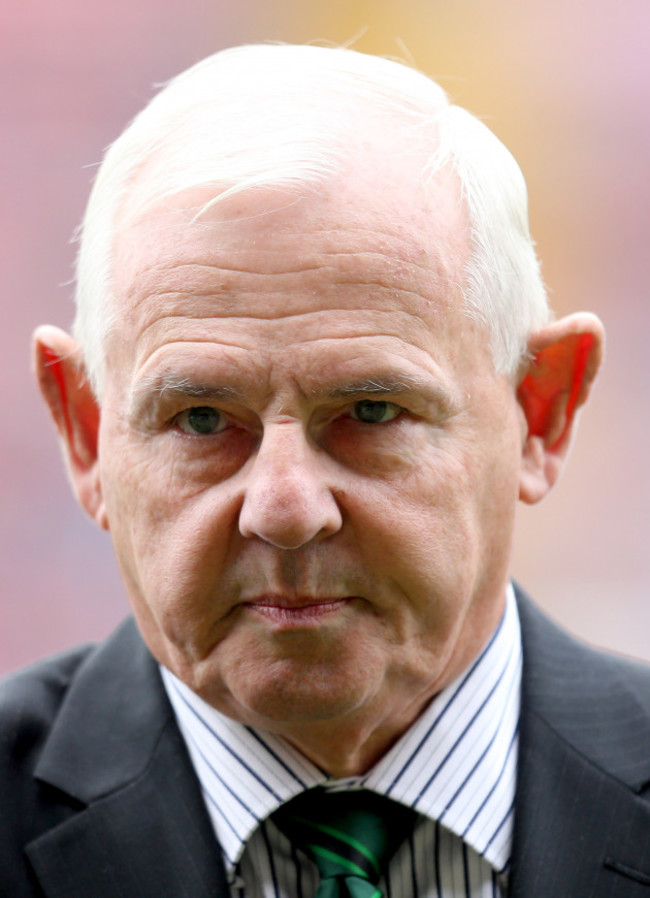
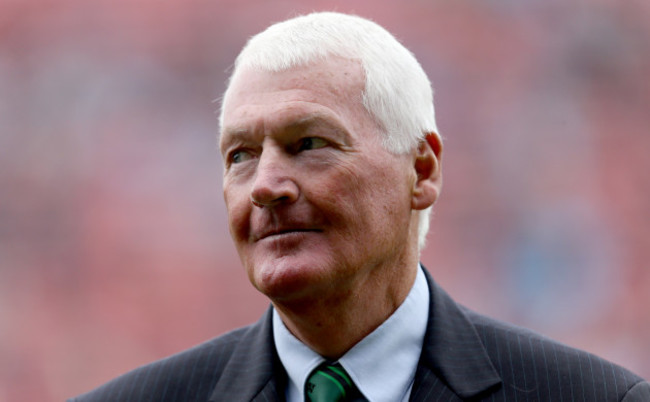
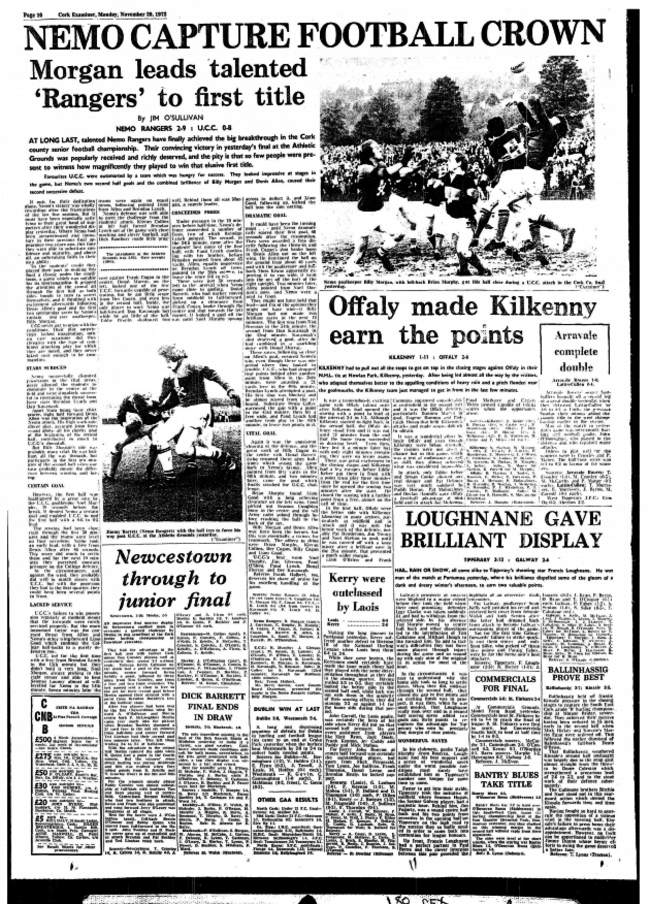
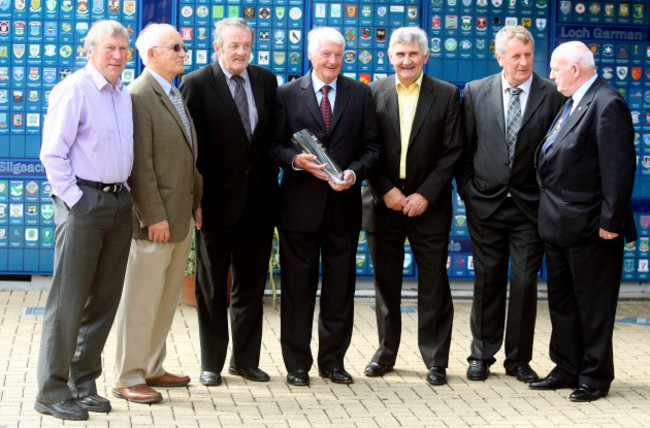
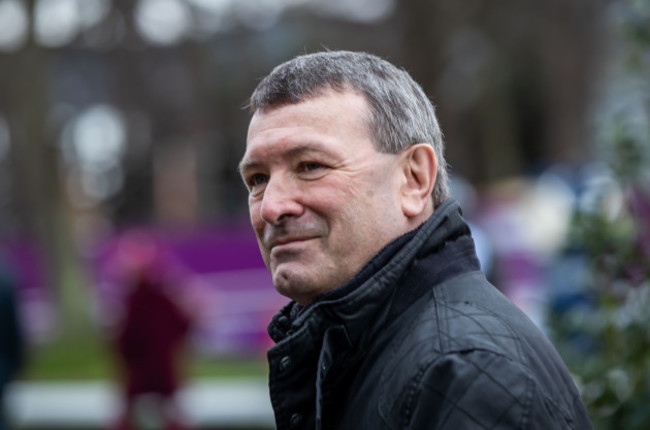
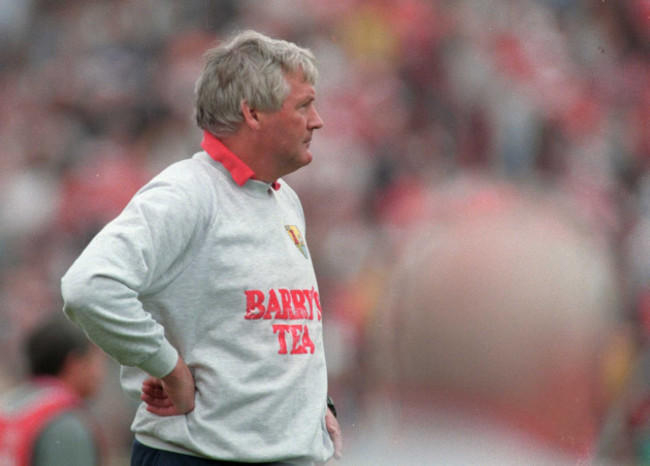
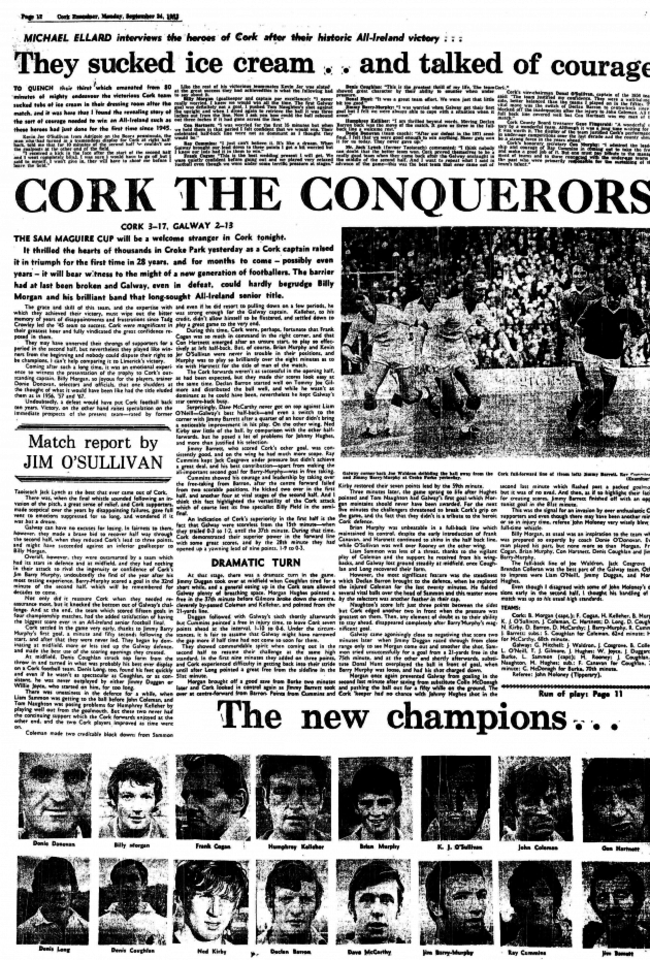
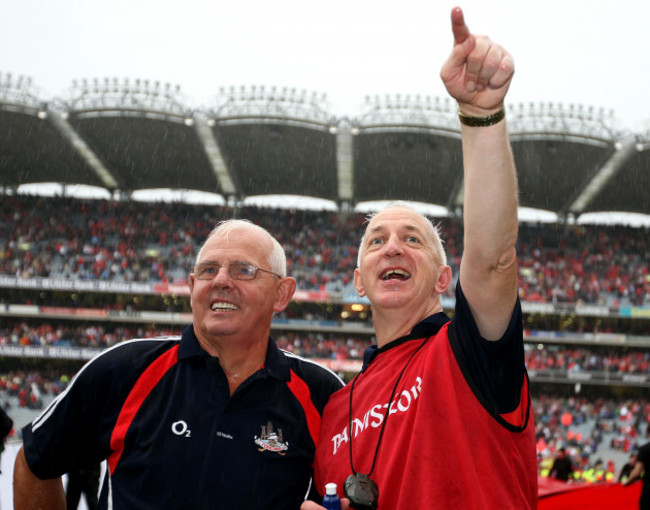
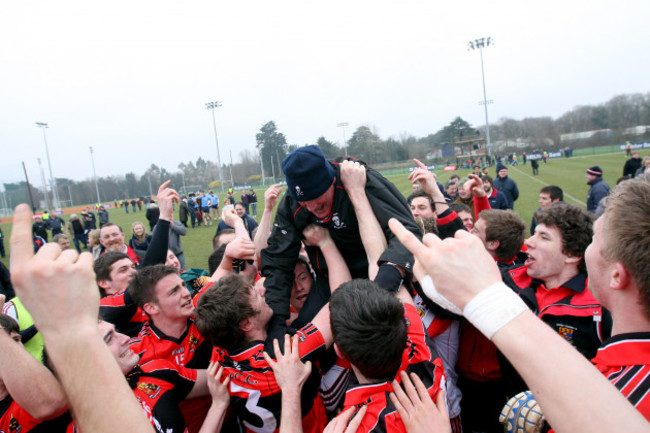
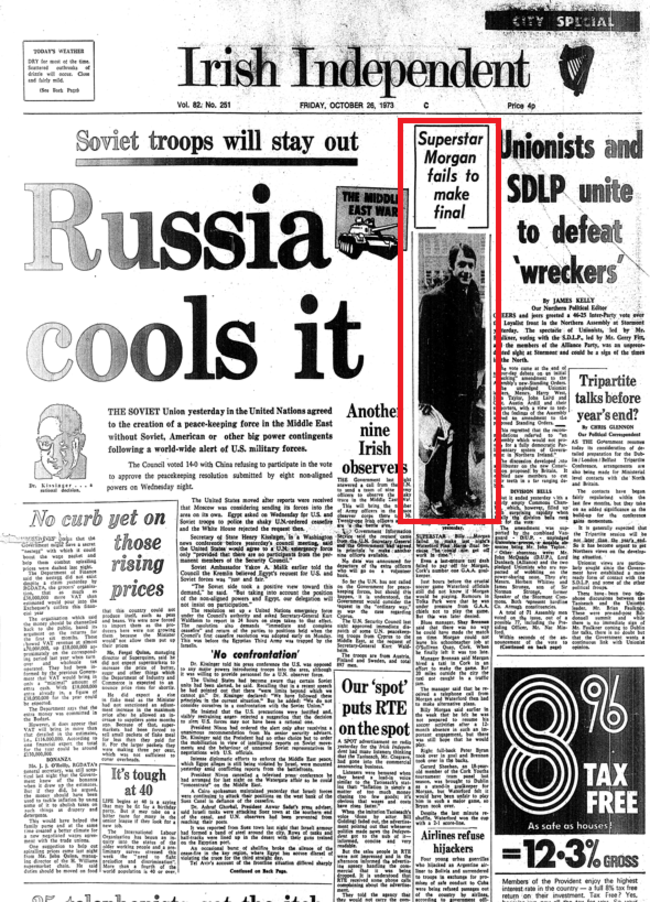

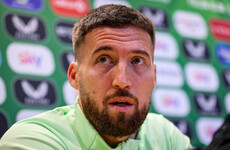
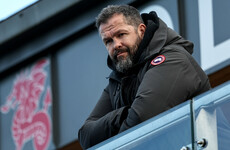
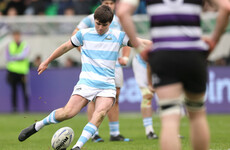
Had to lol at Sky referring to Andy Murray as a Brit when he won the set. He’ll be back to being the Scot if federer wins.
Why bother watching British tv then, match us also on TG4 – I’m sure you’re fluent
If Andy Murray wins, his mother Judy will swoop down onto court and regurgitate a dead mouse for him.
haha brilliant
Can’t stand Andy Murray, comes across as a right snob
Sickened!
Some match so far and i don’t even like tennis.
What’s the score now ?
One set all, i can see Federer wearing Murray down, has that extra bit of class but Murray has a lot of heart.
Yawn !
It’s a great match. Some fantastic tennis, exciting to watch.